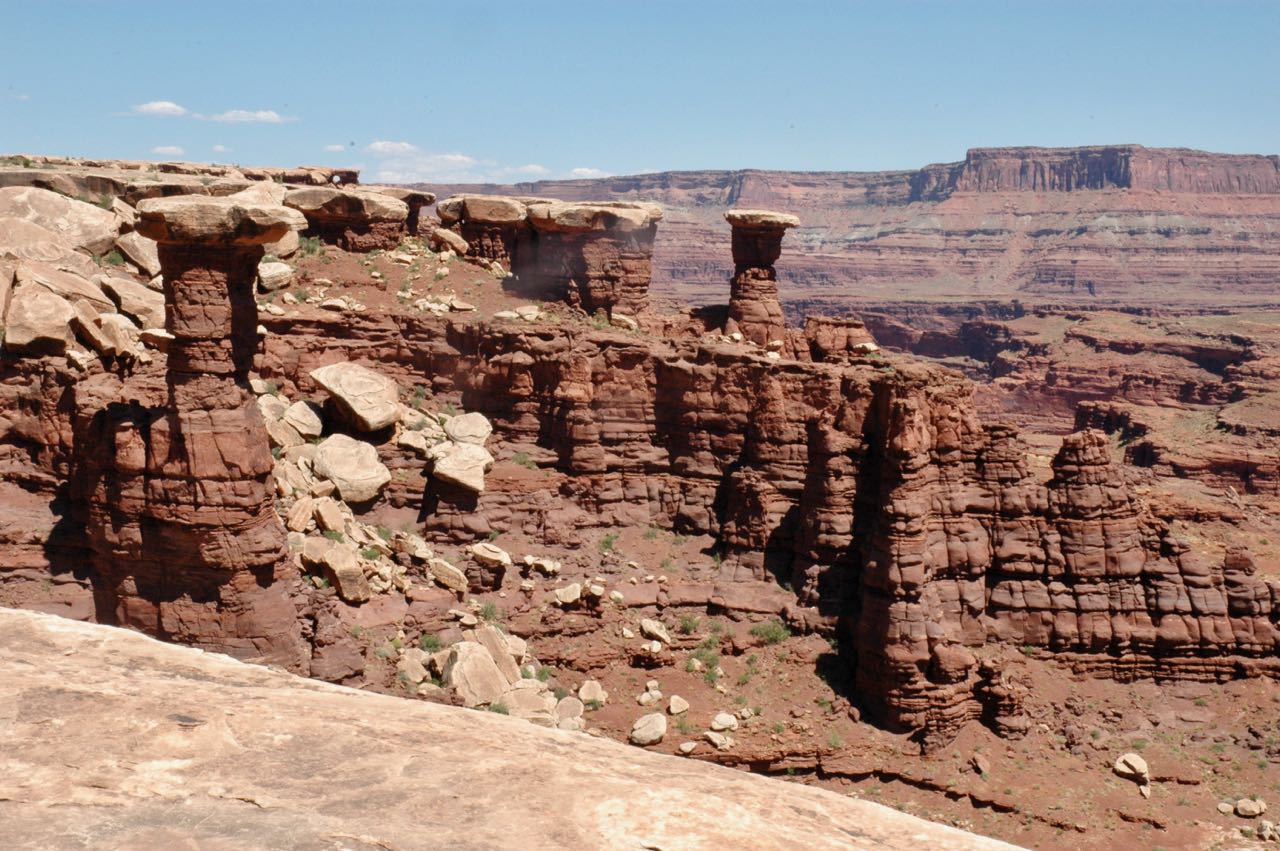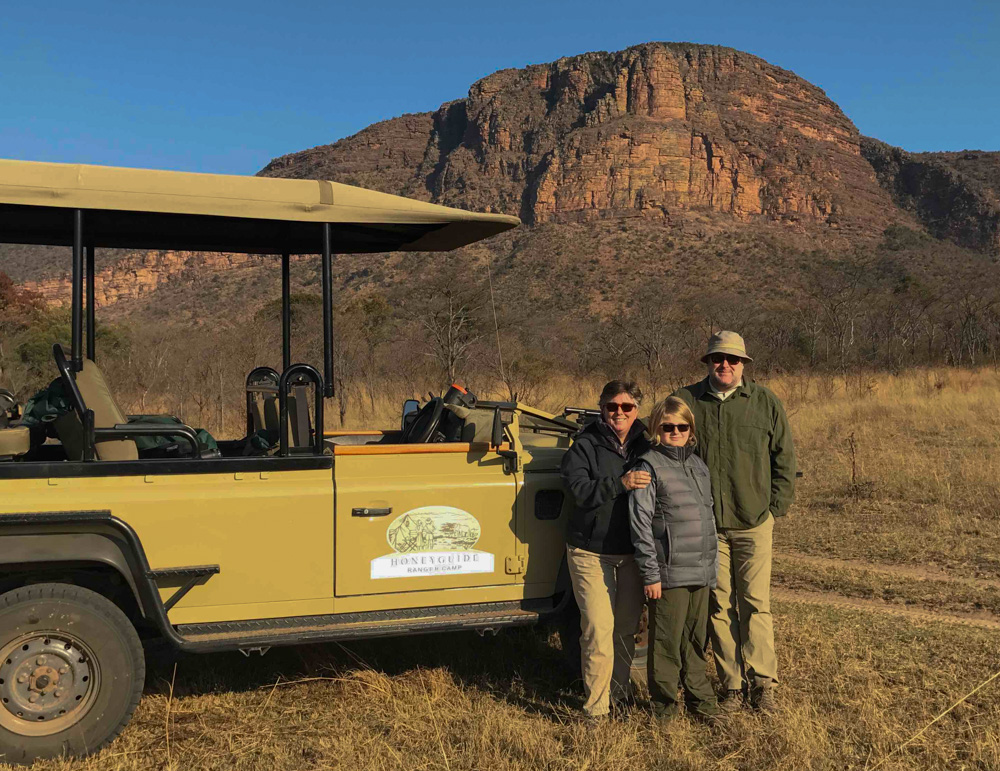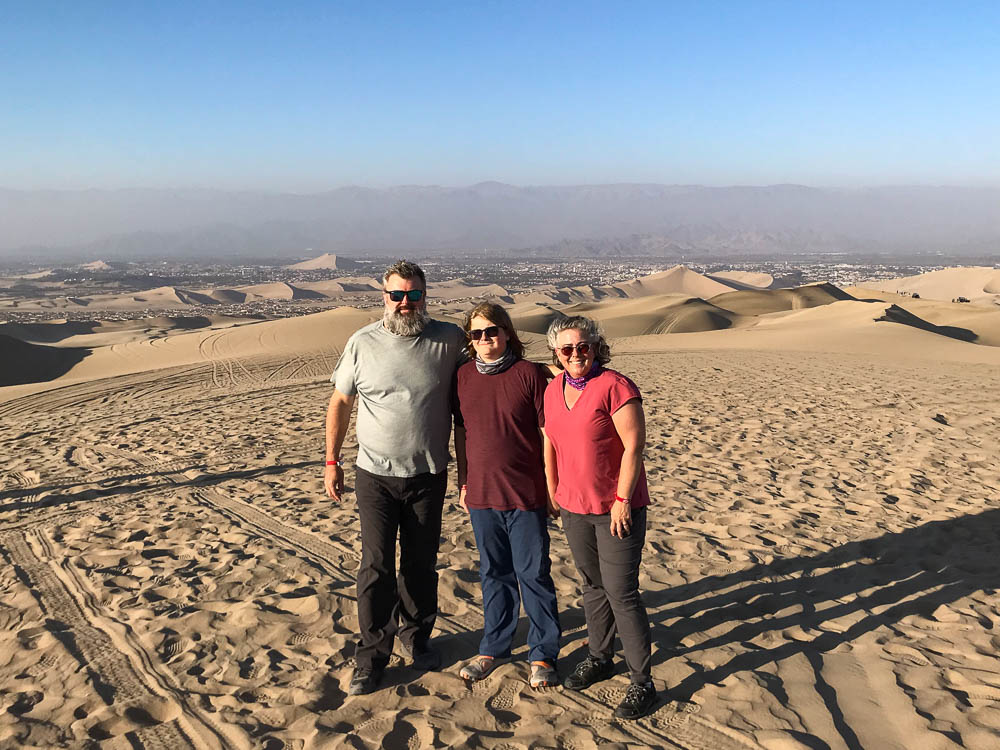Family Safari – Johannesburg
A Johannesburg Stopover
Our major travel for 2017 was a trip to South Africa and Swaziland. The main goal was to see some of Africa’s wildlife on safari. Kruger National Park was the planned highlight, but we had two weeks to check out a few different game reserves and do some non-animal sightseeing as well. Our first stop in South Africa was Johannesburg.
South Africa is a looooong way from the US. The most direct way for us to get there from Houston is to travel to Atlanta to connect to the direct flight on Delta from Atlanta to Johannesburg. We weren’t sure how we would handle such a long flight, so we planned for two nights in Johannesburg. The idea was that we may need a day to recover from the flight, but if we felt up to it we would have a day to do some sightseeing in Johannesburg.
Finding reasonably priced accommodation for a family of three close to the airport in Johannesburg turned out to be more difficult than expected. We were very fortunate to find the Blue Mango Lodge which turned out to be a great option. It’s a friendly B&B with great personal service and good food. Also, the owner Stevie makes a mean gin and tonic (this is important in Africa).
A Free Day in Johannesburg
As it turned out, we woke up for our day in Johannesburg ready to go for some adventures. We got a ride back to the airport from the Blue Mango Lodge staff to pick up our rental car. After sorting out all the paperwork we settled in to our ride for the next two weeks, a white Nissan X-Trail 4X4. This was a comfy SUV that turned out to have some pretty serious bad-road capability. This would be tested later in the trip.
Johannesburg is a major city that would warrant a week’s worth of exploration, but we only had one day. After considering other major sights like the Apartheid Museum and Soweto, we decided to check out the Cradle of Humankind.
The Cradle of Humankind – Maropeng Visitor Centre

Maropeng Visitor Centre – Cradle of Humankind, South Africa
The Cradle of Humankind is an area where many important hominid fossils have been found over the years providing much of the information known to science about the origin and development of human life. Our first stop was the Maropeng Visitor Centre. Many of the fossils found here are an display, with information about their significance.

Maropeng Visitor Centre – Cradle of Humankind, South Africa

Maropeng Visitor Centre – Cradle of Humankind, South Africa
In the basement level of the building there are displays about the development of life in general across all species. We also took a bizarre boat ride through differently lit chambers. I’m not sure what the educational point of this is. At least it was a bit of a palate cleanser for our jet-lagged brains struggling to absorb the overwhelming amount of information from the various displays.
After seeing everything inside the building, we followed the trail around the very distinctive building. Climbing to the top we found a great view of the surrounding area. As you can see, it was all pretty brown due to South Africa’s dry winter weather.

View from the Maropeng Visitor Centre – Cradle of Humankind, South Africa

Aloe Ferox at the Maropeng Visitor Centre, Cradle of Humankind
With no other options nearby, we ate a surprisingly decent lunch at the restaurant at the top of the building. After lunch, we headed to the other must-see element of the Cradle of Humankind, the Sterkfontein Caves.
The Cradle of Humankind – Sterkfontein Caves

Sterkfontein Caves – Cradle of Humankind, South Africa
The Sterkfontein Caves are a set of limestone caves that are the site of some of the most important hominid fossil finds. They are worth visiting for their historical significance, not their natural beauty. Unlike most caves visited by tourists, you won’t see stalactites and stalagmites. These were all removed by limestone miners in the late 1800s. These miners discovered hominid fossils that were then investigated by scientific expeditions from the 1930s onwards.
The caves are close to the surface in some areas, with openings that are probably how the unfortunate hominids ended up in the caves to become fossils. There are no signs that they ever lived in the caves.

Sterkfontein Caves – Cradle of Humankind, South Africa
We got to see an underground lake, and managed to spot some of the blind shrimp that live in it. The bright orange hard hats we had to wear were a fashion highlight.

Sterkfontein Caves – Cradle of Humankind, South Africa
It was late afternoon by the time we were done with our cave tour, so we headed back to our B&B. After an excellent dinner and one of manager Stevie’s special gin and tonics (for Heide and Andrew, at least) we slept very well that night.
Pretoria and Onwards
The next day we planned to head out to our first game park of the trip. With only a few hours drive to get there, we figured we’d have time to see some sights in Pretoria. As it turned out we spent more time than we thought we would at our first stop, the Voortrekker Monument.

Voortrekker Monument – Pretoria, South Africa
The monument was built to commemorate the Great Trek across South Africa by pioneering Boer families. As well as its impressive scale, there are lots of interesting details.

Voortrekker Monument – Pretoria, South Africa

Voortrekker Monument – Pretoria, South Africa
The gardens around the monument were immaculately kept with some interesting native African plants, including a spectacular coral tree.

Coral Tree at the Voortrekker Monument – Pretoria, South Africa
Around all the interior walls at ground level are incredibly detailed sculptured panels depicting events from the Great Trek.

Voortrekker Monument – Pretoria, South Africa
Downstairs is a cenotaph and a museum with displays illustrating the life and times of the Boers who made the Great Trek. Like most historical museums, it makes you glad to live in these modern times. There is a bit of an ominous undertone seeing the celebration of the Afrikaner culture that ended up bringing Apartheid to South Africa. However, we enjoyed our visit, and spent more time there than we’d planned.
After we finally got away from the Voortrekker Monument we planned to stop and see some historical buildings in downtown Pretoria. Due to construction and the general chaos downtown we decided to skip these and instead headed for the freeway. This was just as well, as the trip out to our first game reserve took longer than we thought. We made it to camp just in time for a quick lunch before our first game drive. More on that in our next post …




















 Travel Magazine
Travel Magazine